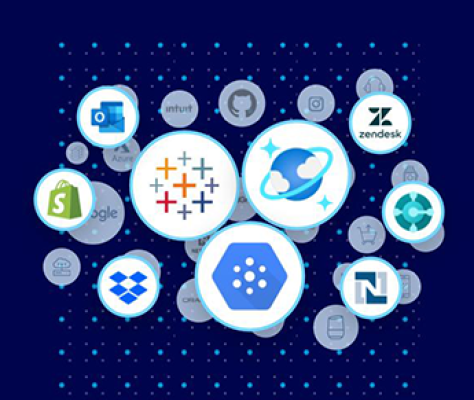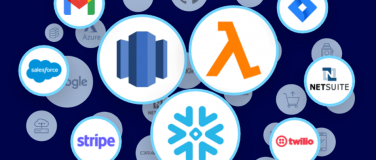Anypoint Platform offers a wide variety of Anypoint Connectors to facilitate easy integration with third-party applications. But what kinds of connectors are available in Anypoint Exchange and what are the most downloaded connectors for 2017?
We compiled a list of the top 10 most downloaded connectors for 2017 so far. This list is in no particular order.
1. Object Store Connector
The Object Store Connector lets users connect to the object storage facility in Mule and exposes convenient methods for exploiting the capabilities of Mule Object Stores. Internally, Mule uses object stores in various filters, routers, and other message processors that need to store state between messages.
2. Anypoint MQ Connector
Anypoint MQ is a multi-tenant, cloud messaging service that enables customers to perform advanced asynchronous messaging scenarios between their applications. Anypoint MQ is fully integrated with Anypoint Platform, offering role based access control, client application management, and connectors.
Anypoint MQ Connector enables users to send and receive messages from any Mule application, whether it’s deployed in CloudHub or used in a hybrid scenario and deployed on-premises.
Read the user guide to learn more.
3. Workday Connector
The Anypoint Connector for Workday is a closed source Enterprise connector that provides a connection between Workday and third party software. It implements the Workday v28.0 API modules, and interfaces with the Human Capital Management, Financial Management, Student, and System web services. The Workday Connector is a SOAP-based connector developed with Anypoint Connector DevKit 3.9.0.
4. Kafka Connector
The Anypoint Connector for Apache Kafka allows you to interact with the Apache Kafka messaging system, enabling seamless integration between your Mule applications and an Apache Kafka cluster, using Mule runtime.
5. LDAP Connector
The Lightweight Directory Access Protocol (LDAP) is a public standard that facilitates maintenance and access to distributed directories (such as network user privilege information) over an Internet Protocol (IP) network.
The LDAP Connector is an operation-based connector, which means that when users add the connector to their flow, they will need to configure a specific operation for the connector to execute. The connector currently supports a number of operations––from retrieving a unique LDAP entry to deleting an existing LDAP entry.
6. CloudHub Connector
The CloudHub Connector provides the ability to interact with CloudHub from within a Mule application. The operations allow you to deploy, start, stop, and update applications as well as send notifications from your Mule application to CloudHub.
7. NetSuite Connector
NetSuite is the world’s leading provider of cloud-based business management software. The NetSuite Connector makes use of the SuiteTalk WSDL to provide SOAP-based integration and generate NetSuite business objects, make use of different authentication levels, and support error handling.
The connector is also able to perform REST calls to RESTlets that expose APIs created with SuiteScript.
8. Microsoft Dynamics CRM Connector
The Microsoft Dynamics Customer Relationship Management (CRM) Connector lets you access Microsoft Dynamics CRM’s SOAP Organization Service. You can add this connector to an Anypoint Studio flow.
The connector enables users to create, update, and delete records; retrieve a single record or query multiple records, and more. The connector supports Microsoft Dynamics CRM online as well as Microsoft Dynamics CRM (on-premise), versions 2011, 2013, 2015, and 2016.
9. Salesforce Connector
The Anypoint Connector for Salesforce lets you connect Mule to the Salesforce platform. The connector exposes convenient methods for exploiting the capabilities of Salesforce, including working with Apex classes. The connector executes API calls targeting Salesforce’s SOAP API, REST API, Bulk API, or Streaming API, depending on the operation users configure.
The API calls use an XML request/response over an HTTPS connection. All required request headers, error handling, and HTTPS connection configurations are abstracted from the user and built into the connector.
10. ServiceNow Connector
The ServiceNow Connector facilitates connections between Mule integration and ServiceNow applications. The ServiceNow Connector v5 provides these operations: aggregate, deleteMultiple, deleteRecord, get, getKeys, getRecords, insert, insertMultiple, and update. You can use these operations with the custom ServiceNow tables, along with any operations available through the installed plugins.
Want to use these connectors and see them at work? Explore them further by signing up for Anypoint Platform and exploring Anypoint Exchange.









